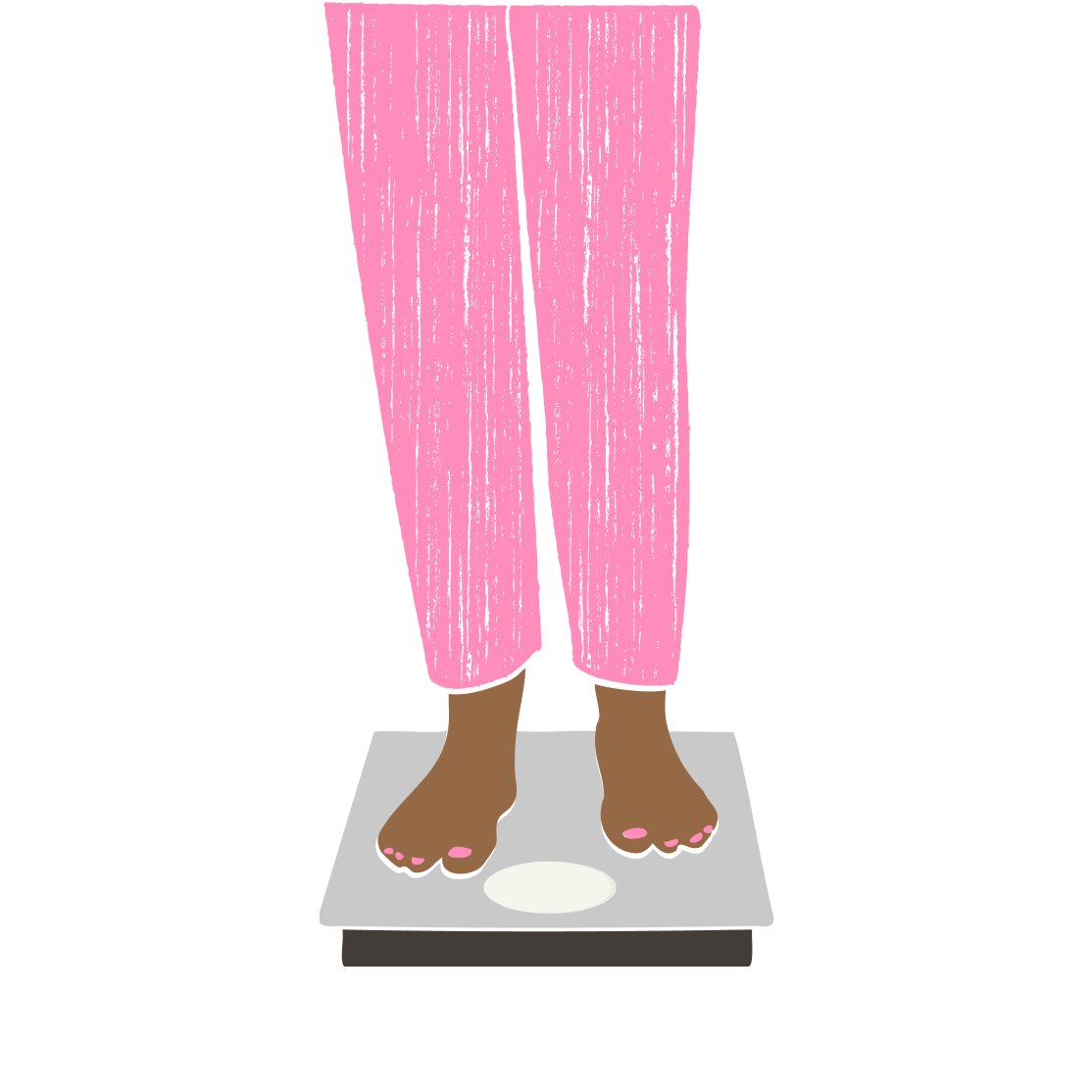Struggling with menopause and anger, especially anger directed at your husband or partner? You're not alone—up to 70% of women in perimenopause report mood challenges like irritability and rage. This common yet taboo symptom can leave many feeling ashamed and confused. Thankfully, there are effective ways to manage menopause rage, including hormone therapy, lifestyle changes, and supplements.
When excited couples, full of love and optimism, sit down to write their wedding vows, we’re betting they don’t immediately think of including a “Menopause and Anger Towards Husbands or Partners” clause. But if you’re reading this story, you may wish you had, especially if you’re in midlife and can relate to this picture: You’re struggling to keep too many plates spinning—career, finances, caring for children and possibly aging parents. Me Time feels like a fairy tale. On top of all this, you’re navigating anywhere from one to dozens of the symptoms of perimenopause and menopause, which may include hot flashes, night sweats, brain fog, and an evaporated libido.
Oh, and you feel angry. Like, all the time. Things that used to roll off your back make you want to scream, and not even the slowest, deepest breathing can prevent an eruption. In your direct line of fire? Your partner. Irritability, resentment, and rage seem to have replaced your feelings of affection and appreciation.
If all this sounds familiar, you’re not alone. When it comes to menopausal symptoms, temperature swings and vaginal dryness get most of the attention. Emotional dysregulation usually isn’t part of the conversation, but even when mood swings are mentioned, it’s typically in the context of depression and anxiety. And that’s critical—as many as half of perimenopausal and postmenopausal women experience psychological and emotional symptoms like anxiety and depression, both of which are serious and demand attention. Yet despite most women reporting varying levels of irritability in the hormonally turbulent midlife years—it’s the number one mood complaint for up to 70% of women in perimenopause—anger remains a taboo topic.
We may talk even less about menopausal anger towards husbands, or any partner for that matter. As a result, women are left feeling confused and ashamed when they find themselves overwhelmed by anger that often ends up directed at the person closest to them.
But it doesn’t have to be this way. Understanding hormones' role in regulating emotions is a crucial first step in regaining your footing. “Midlife should really be awesome,” says Midi Health’s Chief Medical Officer Kathleen Jordan, MD. “Do not resign yourself to the idea that any symptom, including irritability, is an inevitable part of aging. Focusing on yourself—your selfcare healthcare—can make this time of life much more enjoyable for you and can positively affect your family and relationships.”
Read on to learn more about menopause rage—what causes it and how to rein it in with strategies from Midi Health clinicians.
The Connection Between Menopause and Anger
As with all menopausal symptoms, feeling chronically ticked off and quicker to lash out can be traced back to fluctuating hormones. In the 4 to 10 years leading up to menopause, a.k.a perimenopause, estrogen levels begin to zigzag up and down, sometimes dramatically so, before dropping off and remaining low post-menopause.
“As estrogen, dopamine, and serotonin levels decrease, that can trigger other symptoms, like hot flashes and night sweats, that can contribute to changes in mood and sense of wellbeing,” says Dr. Jordan.
Many women know estrogen governs bodily processes like menstruation and sex drive, but far fewer realize its powerful influence on mood, working hand-in-hand with the nervous system to manufacture and release brain chemicals called neurotransmitters that are essential for emotional regulation and mood stabilization. Specifically, estrogen is a critical player in producing serotonin, known widely as the “feel good” brain chemical. (If you’ve ever heard of or taken a common type of antidepressant called an SSRI, this may sound familiar; SSRI stands for Selective Serotonin Reuptake Inhibitor.)
As estrogen diminishes, so does serotonin. That can lead to heightened feelings, like:
- sadness and anxiety
- chronic overwhelm
- chronic irritation
Research shows that women with yo-yo-ing estrogen levels are more likely to experience stressful events more negatively, and with more anger, than women with higher or more consistent levels.
Loosely translated: Women in perimenopause may have bigger feelings and emotional reactions than those whose bodies and brains are still flush with estrogen, so it may be harder to weather challenges you would have sailed through 10 years prior. The fallout can include mood swings, a shortened fuse, and daydreaming about throttling the grocery store cashier for taking so long, or running away from your family and living out the rest of your days in a mountain hut.
Another hormone-driven anger trigger involves estrogen’s role in the amygdala, a part of the brain’s emotional processing center. The amygdala determines your response to environmental cues that make you feel stressed, scared, or mad, sending one of three signals to your brain and body: Fight, Flee, or Freeze. Two things that cause the amygdala to become more sensitive? Lower estrogen levels and chronic stress. A hypersensitive amygdala is more likely to interpret information in a negative light, meaning something that wouldn’t have upset you premenopause is more likely to push your buttons.
Menopause rage can also be partially chalked up to lower levels of oxytocin, the “love hormone” or “cuddle chemical” involved in sexual arousal and romantic attachment, especially in the beginning stages of most relationships. It also flows every time a mother nurses her baby, helping cement their bond, and is known for generally reducing aggression, easing anxiety, and cultivating empathy towards others. Oxytocin depends, at least in part, on estrogen, so as estrogen levels fall in perimenopause, women can find themselves feeling less attached to others...and less willing to put up with their quirks, tendencies, and general BS.
Neuropsychiatrist Louann Brizendine, MD, discusses this in The Female Brain, writing, “She’s less interested in the nuances of emotions; she’s less concerned about keeping the peace...she’s less inclined to be as attentive to others’ personal needs....there’s a new reality brewing in [the brain], and it’s a take-no-prisoners view.”
Besides these direct hormonal triggers, menopause anger is often a trickle-down effect of dealing with other non-mood-related menopause symptoms, including:
- Sleep loss: Lack of good quality rest has an enormous impact on mood regulation. Just one night of lousy sleep (less than six hours) is enough to lower your buffer for stress—imagine what years of insomnia and night flashes could do.
Other perimenopause symptoms that can understandably leave you on edge:
- unpredictable menstrual cycles
- abdominal weight gain (aka “meno belly”)
- cognitive struggles (aka brain fog)
- hair loss
- achy joints
- loss of sex drive
- bladder issues (incontinence, for one)
Many women report feeling unprepared for menopause and don’t immediately connect their symptoms to their hormones. And not knowing why you’re suddenly experiencing physical and emotional changes can be downright scary. (It’s not uncommon, for instance, for women to incorrectly self-diagnose perimenopausal brain fog as early dementia.) Fear and confusion only add to the tendency to flare up when life throws you even minor curveballs.
Why Are You So Angry at Your Husband or Partner?
Menopause activist Penny Lancaster tells a now-legendary story of hurling dishware across the room at her husband, musician Rod Stewart, while in the throes of a perimenopausal mood swing. After repeatedly ignoring her requests to come down for dinner, her kids began arguing and “I just snapped,” Lancaster has said. “It was just completely out of the blue, out of character, and I screamed and threw the plates.”
Lancaster’s story may be extreme, but it shines a light on just how hard-hitting hormonal anger can be...and how women’s partners often end up on the receiving end. Justifications? Oh yes, there are plenty, and some are valid. Supportive, health-savvy partners exist, to be sure. But many women report feeling misunderstood or unheard as they cope with the consequences of fluctuating hormones. In a 2024 study titled “‘Friends? Supported. Partner? Not so much …’: Women's experiences of friendships, family, and relationships during perimenopause and menopause,” 71 peri/menopausal women between ages 37 to 65 years were interviewed about their interpersonal relationships.
One woman’s unsupportive husband during menopause “seemed dismissive” while another's “seemed rather confused by the whole thing.” One partner “just laughed and rolled his eyes.” In an older but similar study, a woman’s boyfriend managed to combine support and an implied breakup threat in one fell swoop as he pleaded, “Please quit biting my head off and trying to kill me. Please get something done because I love you and I want to stay with you. I love you honey, but...” To the surprise of no one, partner responses like these, the latter study’s author wrote, can take an emotional toll on women.
When discussing menopause and anger towards husbands, several other themes frequently emerge:
- Battling symptoms like peekaboo periods and shirt-drenching hot flashes while your partner enjoys what feels like a Get Out of Midlife Free pass can breed resentment.
- Outdated and toxic (but persistent) stereotypes equating menopause with old age or a loss of beauty and sexuality can damage your psyche, as can a changing body shape. You may take your anger out on the person closest to you.
- Menopause can stir up heavy existential questions, like “Did I make the right decision by having/not having children?” or “Have I achieved what I thought I’d have achieved by this point?”
- Unresolved feelings toward your partner can cause tensions to flare.
Add in the general stress of being a woman in midlife, including caring for everyone except yourself, and it’s no wonder you’ve been pushed past your tipping point.
Coping With Anger During Menopause
Anger is a natural emotion; used constructively, it helps you express your feelings and can inspire healthy problem-solving. But when it mushrooms out of control, your mental and physical health can deteriorate (excess anger is linked with a heightened risk of heart disease and heart attack, gastrointestinal and skin conditions, and more), as can your relationship.

“Diet changes, exercise, and optimizing sleep can all positively impact your control of your mood,” says Dr. Jordan. Here are some expert-backed strategies for coping with anger during menopause:
Lifestyle Strategies That Help with Anger During Menopause
- Know your anger triggers and take steps to avoid them. Sleep loss is a near-universal fuse-shortener, as are hunger (a.k.a hanger) and loneliness, but anger triggers can be pretty personal, too. If you usually rely on daily yoga or getting lost in a good book to help release tension, for example, but have found yourself prioritizing other people’s needs instead, you’re more apt to take your frustrations out on your partner. Pinpoint your unique anger triggers and troubleshoot solutions.
- Write yourself an Rx for exercise. Regular exercise protects mental health, full stop. Getting your heart pumping sparks the release of endorphins, mood-boosting neurochemicals that help you cope with stress and anxiety, as well as feel-good neurotransmitters like dopamine and serotonin. It can also improve sleep. All of these have the potential to help you maintain a calmer, less volatile baseline. There’s also a school of thought that suggests that as your body works to slow your breathing and heart rate post-workout, it trains your brain to calm down during moments of stress, anxiety, or anger.
- Pick a mind-body practice—any mind-body practice. Anything that helps you tap into the mind-body connection has the potential to help you regulate your emotions, anger included. Meditation, guided imagery, yoga, and progressive muscle relaxation all foster mindfulness, defined as a state of being characterized by non-judgemental awareness and acceptance of your emotions and circumstances. This is why meditation instructors are forever saying, “If your mind wanders, don’t judge yourself and gently bring your attention back to your breath.” With practice, this ability to tolerate perceived failure without judgment becomes a natural response as you navigate tough moments in everyday life.
Can Hormone Replacement Therapy Help with Menopause Anger?
Considering estrogen’s powerful impact on mood, it’s not surprising that supplementing your estrogen levels can help you regain some emotional stability as you move through the hormonal turbulence of perimenopause.
Hormone Replacement Therapy (HRT), sometimes referred to as menopausal hormone therapy or MHT, helps to curb anxiety by supplementing estrogen (you’ll also need progesterone as part of your HRT, unless you’ve had a hysterectomy). If you’re dealing with hot flashes, night sweats, symptoms of insomnia, vaginal dryness, brain fog, and other irritating symptoms of menopause, your mood stands to benefit even more, as HRT is effective at relieving all of these, too. HRT comes in many forms, including pills, patches, creams, and gels; you can work with a healthcare professional, like a Midi clinician, to choose the form that best fits you, your health history, and your symptoms.
Antidepressants are another option. Selective serotonin reuptake inhibitors (SSRIs) increase serotonin levels in the brain, often translating to improved mood and emotional regulation. You may also get relief from non-hormonal prescription medications, including serotonin-norepinephrine reuptake inhibitors (SNRIs) and short-acting anxiety-relieving drugs like Xanax, hydroxyzine, and buspirone (or Xanax).
Botanicals and Supplements
If you’d rather avoid prescription medications, several botanicals and nutritional supplements may help calm anxiety and anger, including ashwagandha (an adaptogen that supports the body's ability to manage stress), magnesium, and L-theanine (for sleep and relaxation). Your Midi clinician may recommend one or more of these supplements when appropriate.
Therapy Options for Menopause Rage
In therapy, you’ll learn strategies to change how you respond to anger triggers. Many flavors of therapy exist:
- Cognitive behavior therapy (CBT) focuses on changing harmful thinking patterns and responses to triggers. (“I’m an awful person for snapping at my partner” is reframed as “I’m barely sleeping and am unhappy with how perimenopause is changing my body, plus my demanding job and young kids are sapping my energy. I’m trying my hardest, but it makes sense that I’m grouchy.”) Reframes like these can help short-circuit future angry outbursts and serve as a warning sign it may be time to take a minute to reset, like a quick walk around the block or excusing yourself for a few deep breathing exercises in the bathroom.
- Dialectical behavioral therapy (DBT) retrains your brain to manage intense emotions using mindfulness, distress tolerance skills, and interpersonal communication techniques. (You’ll learn skills like radical acceptance, “surfing” intense emotions as if they were ocean waves that come and go, and remembering that two opposing things—“I’m annoyed by my husband and also, I love him”– can be true at once.)
- Acceptance and commitment therapy (ACT) cultivates psychological flexibility, the ability to accept one’s emotions, thoughts, and life circumstances rather than judge or attempt to control them. (Rather than mentally replaying an argument with your spouse, thinking about how rudely they acted, you get some distance and defuse tension by thinking, ‘I’m having the thought that my husband was disrespectful.”)
Ask your healthcare professional, like a Midi clinician, to refer you to a therapist who can help you determine the best kind of therapy for your needs.
For Partners: How to Provide Support During Menopause
Does menopause cause anger? If your wife, girlfriend, or partner is in perimenopause and frequently seems more irritated or annoyed than usual—including by you—you already know the answer: that hormones, stress, and the ups and downs of everyday life conspire to lower a woman’s boiling point. You may feel helpless, but romantic partners can play an important role in supporting women as they deal with menopause anger. A few tips for helping your partner through the menopause transition include:
Tip #1: Get educated.
When the husbands of nearly 100 female participants in the longitudinal Midlife Women's Health Survey answered questions regarding how supportive and knowledgeable they perceived themselves to be as their wives navigated the menopausal transition, more than one in four admitted they knew little or nothing about menopause. Of those who did claim some knowledge, most said they received their info from their wives.
If your partner was expecting a baby, you’d brush up on pregnancy, labor, and breastfeeding, right? Menopause is no different. Educate yourself about some of the most common symptoms of menopause, including the link between menopause and mood. She’s going through a lot right now and needs all the support you can offer.
Tip #2: Listen to your partner.
For women, the ability to talk about and share their health experiences with their romantic partner is closely linked with emotional well-being, and your response to her menopause anger and other symptoms has the power to shape how she views her menopause journey, research suggests. Don’t dismiss her concerns, call her irrational, or ask her why she can't control her anger or isn’t initiating sex. If you felt like multiple systems in your body were suddenly going haywire, you’d be cranky, too. Remind her that you’re a team and you want to know how you can help. She may prefer that you give her space, or she may want you to join her at her next doctor’s visit. A little compassion will go a long way.
Tip #3: Take something off her plate.
For many women, perimenopause hits when they have children at home and a thriving career. Add on the fact that most of the emotional labor and household duties fall on women and your partner has her hands full. Odds are she needs you to pitch in more with errands and to do’s, and generally carry more of the emotional load. She could also use a little free time to relax, meet up with friends, or do anything that gives her joy. Ask her what she needs but also, be proactive. Take out the trash. Wrap the birthday present. Anything you can take off her plate can help.
Tip #4: Be mindful together.
Earlier in this article, we mentioned mindfulness as an effective anger neutralizer for women. It can help you, too. Bearing the brunt of menopause rage is no easy task—and taking time to decompress may help improve communication between the two of you. In one study, couples were hooked up to medical equipment that measured their heart rate variability (HRV, the variation in time between heartbeats; high HRV is associated with better emotional regulation) and asked to discuss a significant problem in their marriage that was deeply troubling for both partners. Individuals who scored higher on an earlier mindfulness survey displayed better heart readings when discussing conflict than their less mindful counterparts. Translation: Cultivating mindfulness can help both of you keep your cool when things get heated.
The Takeaway
- Despite most women reporting varying levels of irritability in the hormonally turbulent midlife years, anger remains a taboo topic. Yet it’s the number one mood complaint for up to 70% of women in perimenopause. Often, the rage women point to is triggered by their husbands, or any romantic partner.
- As a result, women are left feeling confused and ashamed when they find themselves overwhelmed by menopause and anger at their husbands or other partners.
- But perk up—we have some good news. There are a wide range of treatment options that can help you control menopause rage, from lifestyle changes to hormone replacement therapy to botanicals and supplements.
If you’re in perimenopause or menopause and want guidance from clinicians who specialize in women’s midlife health, book a virtual visit with Midi today.
Hormonal change is at the root of dozens of symptoms women experience in the years before and after their period stops.
Our trained menopause specialists can help you connect the dots to guide you towards safe, effective solutions.
Whether you need personalized guidance or a prescription routine to tackle symptoms—including brain fog, hot flashes, sleep trouble, mood swings, and weight gain—we’ve got you covered.
Midi’s mission is to revolutionize healthcare for women at midlife, wherever they live and whatever their health story. We believe that starts with education, to help all of us understand our always-changing bodies and health needs. Our core values guide everything we do, including standards that ensure the quality and trustworthiness of our content and editorial processes. We’re committed to providing information that is up-to-date, accurate, and relies on evidence-based research and peer-reviewed journals. For more details on our editorial process, see here.

 Marissa Fontanez, DNP, FNP, FAIHM, MSCP
Marissa Fontanez, DNP, FNP, FAIHM, MSCP



